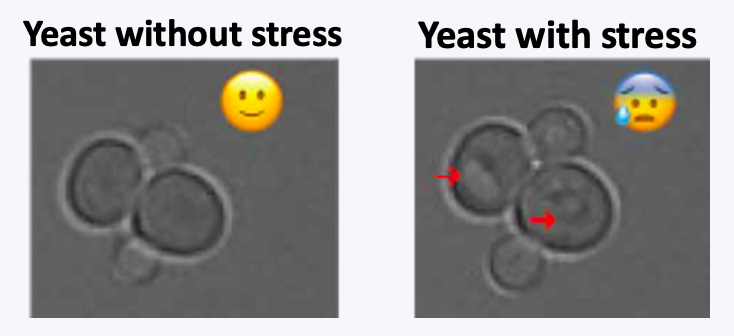
Do All Organisms Feel Pain?
Scientists have revealed that plants exposed to stress also react like humans and animals do. This is a very important discovery for understanding the universality of pain for all living things.
Scientists from Tel Aviv University reported an exciting finding: Briefly, plants emit informative soundwaves when stressed, relaying information regarding their well-being. Whether this is perceived by other plants is a question that will certainly excite current and next generation of scientists. Moreover, observing a human cry-like sound emission, in species that are genetically and evolutionarily far removed from us humans, provides a beautiful opportunity to contemplate about what life is and whether feeling is a universal property of living beings. There is a scientific discipline called biology (life sciences) alas we cannot even define life!
However, scientists are progressing and agree on the fact that learning is one of the fundamental properties of living.
Learning requires perceiving one’s environment and all stimuli. Perceiving is an extremely complicated process. It requires mechanisms to transfer information on the surroundings to an interpreting core. Then it requires an interpretive core (e.g., brain, a nucleus with genetic information) and an integrative component to make use of the interpretation. This function can be found in all sorts of living beings ranging from single-celled organisms to us humans. However, it might be difficult to imagine how individual cells can perceive their environment without being familiar with the details of single-celled (unicellular) life.
Life began as single-celled organisms, and today mostly consists of single-celled organisms. Single-celled organisms need to overcome the problems of living. They need to adapt to their changing environment to survive. Some changes may perturb a cell’s function, thus stress the cell. There is a large community of scientists that study “stress response” in various organisms. This is used as a model to understand how cells adapt to their environments, a question relevant to all domains of life. Cells that cannot adapt to stress die. Some cells adapt and survive fatal perturbations. In other words, they learn how to cope with stress.
The first step of stress response is perceiving the stressful stimulus. Or should I say feeling stress? The cell needs to recognize this environmental change in time, and quickly mount a stress response increasing its chances of survival, by mostly reducing the effects of a stimulus. At this point recognizing a stressful stimulus is completely analogous to a human being or an animal feeling pain and trying to avoid the stimuli that cause pain. Astonishingly, there are many examples of extremely similar responses to exact same stimuli between single-celled organisms and humans. A funny example would be the effects of ethanol. Ethanol is a chemical, which in high doses is toxic for all domains of life. 70% ethanol solutions are used as a chemical fixative in cell biology. However, smaller doses, are rather corrosive than fatal. When it contacts an open wound, it elicits pain. When a fungal yeast cell encounters ethanol its vacuole enlarges, cell division halts, bacteria also stop dividing in ethanol and die. Normally, individual cells try to divide under rich nutritional conditions.

In the left photo, swollen round vacuoles are not seen inside the yeast cells which were not exposed to stress. However, the photo on the right shows the yeast cells exposed to stress with swollen vacuoles.
But how do we know that the response single-cells show is not a simple physical interruption, like breaking a glass, and an actual response followed by perception? First, when stress is removed cells continue as before, and many responses observed during stress fade away. Second, as stress continues cells mount an active response to combat the harm done by the stressful perturbation, and if this response is genetically or chemically inhibited, cells have a higher fatality rate when experiencing the same stress. Third, when cells experience a stress stimulus the second time their survival probability increases, indicating that they adapt to stress. All in all, there is no doubt that individual cells can feel the change in their environment and respond accordingly. They respond in a way that helps them avoid the damages caused by the perceived change.
The aforementioned finding in plants is especially important because it might make it easier to empathize with pain felt by non-animal organisms. The idea of pain is associated with the concept of trying to avoid that stimulus. If something is painful, we try to avoid it. So do individual cells, plants and animals. Not all can move, so they may not be able to “run away from harm”. However, all living beings can give some sort of response to stressful perturbations to avoid harm. We even cry-out using sound. In humans, communicating pain with sound has social implications. Thus, I am excited to see if the sounds emitted by plants communicate pain with other fellow plants!
It is critical to understand that pain is universal and does not require a nervous system. An opinion not shared by all biologists... Unfortunately, to ensure our own survival we kill other organisms, and this is a cruel act. Lately, there is a growing movement that advocates avoiding eating animal products, veganism. As far as I know, two main arguments directly relate veganism to pain.
1-Do not kill animals even if you need to eat them, because they feel pain.
2-Do not eat animals, because the animal industry inflicts continuous pain and suffering on these animals.
Although both arguments are based on the fact that animals indeed feel pain, it is not the complete picture. The first argument is not a realistic or a pragmatic argument simply because pain is felt by all organisms, and we critically depend on organic material to live. Just because plants do not respond to stressful perturbations the same way humans or animals in general do, does not mean that they do not feel pain. This is quite an anthropocentric viewpoint.
The second argument is one that I sympathize very much with, and join all those that call on authorities to regulate the animal industry to reduce, or better eliminate, all unnecessary pain inflicted on animals for the sake of profit and unnecessary luxury.
I wish to conclude by saying that we should not forget that very likely the fundamental bases of being alive are universal and humans are not special as we imagine ourselves to be.
Related News













